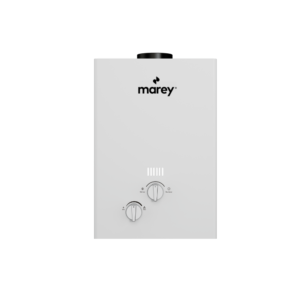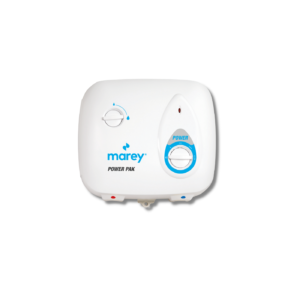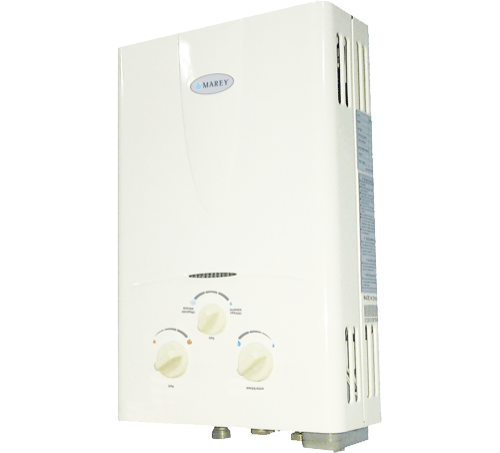When it comes to water heaters, safety should always be a top priority.
After all, nobody wants to deal with accidents or potential dangers caused by an unsafe water heating system.
That’s why choosing the safest option for your home is essential.
In this blog post, we’ll explore the different types of water heaters and highlight the features that make them safe and reliable.
*insert image here*
The Advantages and Safety Features of Tankless Water Heaters
One type of water heater that stands out for its safety features is the tankless water heater.
Unlike traditional water heaters, tankless models don’t store hot water in a large tank. Instead, they heat the water on demand as the water passes through the unit.
This design eliminates the risk of tank leaks and explosions. This makes tankless water heaters safer.
Tankless water heaters also come with advanced safety features.
For instance, many models have a built-in sensor that detects if the water temperature rises to an unsafe level. In such cases, the heater automatically shuts off, preventing scalding accidents.
Tankless water heaters often have a safety pressure relief valve. It releases excess pressure if it builds up in the system.
Common Safety Concerns and Precautions for Water Heaters
Regardless of the type of water heater you choose, there are some general safety concerns and precautions to remember.
- Always follow the manufacturer’s installation, maintenance, and use instructions.
- Regularly inspect your water heater for any signs of damage, such as leaks or corrosion, and address them promptly.
- Set the water temperature at a safe level to prevent scalding accidents. The recommended temperature is around 120 degrees Fahrenheit (49 degrees Celsius).
- Installing a temperature pressure relief valve can enhance safety. The valve will automatically release hot water if the pressure exceeds safe levels.
- If you have a gas-powered unit, ensure there is no obstruction or buildup of flammable materials near the exhaust vent.
Another essential factor to consider is installing Carbon monoxide detectors in your home. This will help to detect potential leaks from gas-powered water heaters.
Making the Safest Choice: Factors to Consider When Selecting a Tankless Water Heater
Several factors contribute to a tankless water heater’s overall safety. Here are 4 key considerations to keep in mind:
- Certifications and Compliance. Look for water heaters that meet the industry’s safety standards. They should also have certifications from reputable organizations.
- Size and Capacity. Ensure that the water heater you choose can meet the hot water demands of your household.
- Fuel Type. Decide whether you prefer an electric or gas-powered water heater.
- Installation and Maintenance. Consider the ease of installation and maintenance requirements. Professional installation is recommended to ensure safety and proper functioning.
Prioritizing Safety in Your Water Heater With Marey
Selecting the safest water heater for your home is vital to protect your family and prevent potential accidents.
Tankless water heaters offer significant advantages in terms of safety.
You can make an informed choice by considering certifications, fuel type, and proper installation.
At Marey, we understand the importance of safety when it comes to water heaters. That’s why our tankless water heaters are designed with advanced safety features to provide you with peace of mind.
Our team is dedicated to promptly addressing any concerns or issues.
Trust Marey to provide you with a reliable, efficient, and above all, safe water heating solution.




